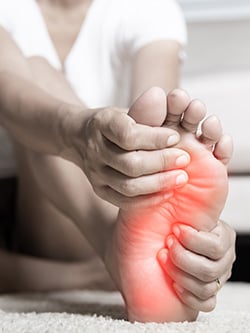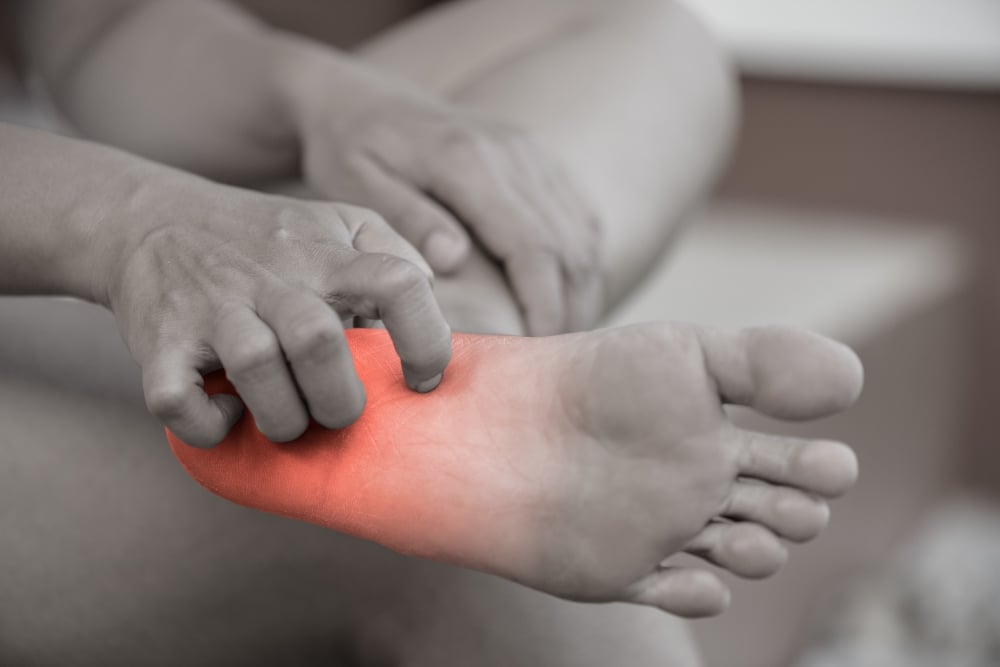Dr. Rose Offers Treatment Option for Painful Neuropathy
Written by Susan Bloom
For the Asbury Park Press
For Gale Krywinski, 65, contracting diabetes 12 years ago was bad enough, but the subsequent tingling sensation she felt in her legs was more than she could bear.
“I could never get my legs comfortable, and it was hard to sit in one place for a while,” she said of the throbbing pain that “made it difficult to go to a show or sit in a car or on an airplane” and which would often wake her at night.
Though the Brick resident and retired healthcare worker tried treating it with medication for a while, “I didn’t like the side effects and didn’t want to live on medication for the rest of my life,” she said. “Most doctors told me they really didn’t have much to offer for my neuropathy and that I would just have to live with it.”
Happily for Krywinski, another option was in store.
“In simple terms, neuropathy occurs when a nerve isn’t working properly, a condition which can result in numbness and tingling in the hands and feet,” said Dr. Michael Rose, a cosmetic, plastic, and reconstructive surgeon at The Plastic Surgery Center in Red Bank, NJ.
Typically associated with diabetes or of “idiopathic” origin with no known cause, neuropathy also can be triggered by alcoholism, lead poisoning, certain medications, and chemotherapy “and can cause crippling pain that makes it difficult for patients to walk, sleep, hold things or work,” Rose said.
“Patients with severe cases often have to go on long-term disability,” Rose added. “It definitely impairs their lives.”
Nerves travel through tunnels, and can swell and choke within their housing if the nerves are not healthy, almost like someone’s neck when it’s restricted by a tight shirt collar, Rose said.
“This compression of the nerves causes a tingling or throbbing sensation in the extremities,” he said. “Many doctors consider neuropathy progressive and irreversible, but the truth is that a subset of patients will respond positively to a special technique that releases pressure on the nerves.”
About half of the patients who have the 45-minute, minimally-invasive outpatient procedure show improvement, Rose said.
To determine a patient’s potential for the procedure, Rose conducts an evaluation to assess their overall health and status of circulation to their limbs, and will then perform a test to determine if the nerve is alive enough to respond.
If the results are promising, he will proceed with the technique.
Krywinski took the chance in July 2012 when she elected to have the procedure performed on her left leg.
“It’s much better than it was before,” she said. “My toes can bend much more easily, and I can put my leg up on the couch and cross my legs for longer.”
She is about halfway through the expected 18-month recovery period for her leg.
“I continue to get more and more sensation back as time goes by,” she said, adding that she returned to have the technique performed on her right leg in January. “My legs aren’t tingling or throbbing anything like what they were before, and I’m so happy for this bit of relief.”
The Institute for Advanced Reconstruction at The Plastic Surgery Center is at 331 Newman Springs Rd., STE 200, in Red Bank, NJ and can be reached at 732-741-0970 or by visiting www.looknatural.com.






